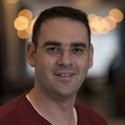Simons Investigators
- Email:
[email protected]
Simons Investigators are outstanding theoretical scientists who receive a stable base of research support from the foundation, enabling them to undertake the long-term study of fundamental questions.
The Investigator program has been discontinued.
Simons Investigators in Mathematics, Physics, Astrophysics and Computer Science
The intent of the Simons Investigators in Mathematics, Physics, Astrophysics and Computer Science programs is to support outstanding theoretical scientists in their most productive years, when they are establishing creative new research directions, providing leadership to the field and effectively mentoring junior scientists. A Simons Investigator is appointed for an initial period of five years. Renewal for an additional five years is contingent upon the evaluation of scientific impact of the Investigator.
Simons Investigators in Mathematical Modeling of Living Systems (MMLS)
This program aims to help the research careers of outstanding scientists working on mathematical and theoretical approaches to topics in the life sciences. A Simons Investigator in MMLS is appointed for five years.
Math+X Investigators
This program encourages novel collaborations between mathematics and other fields in science or engineering by providing funds to professors to establish programs at the interface between mathematics and other fields of science or engineering. A Math+X Investigator is appointed for an initial period of five years. Renewal for an additional five years is contingent upon the evaluation of scientific impact of the Investigator.
- Email:
[email protected]
- Email:
[email protected]
2017
Simon Brendle, Ph.D.
Columbia University
Simon Brendle has achieved major breakthroughs in geometry including results on the Yamabe compactness conjecture, the differentiable sphere theorem (joint with R. Schoen), the Lawson conjecture and the Ilmanen conjecture, as well as singularity formation in the mean curvature flow, the Yamabe flow and the Ricci flow.
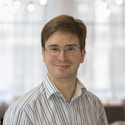
Ludmil Katzarkov, Ph.D.
University of Miami
Ludmil Katzarkov has introduced novel ideas and techniques in geometry, proving long-standing conjectures (e.g., the Shavarevich conjecture) and formulating new conceptual approaches to open questions in homological mirror symmetry, rationality of algebraic varieties and symplectic geometry.
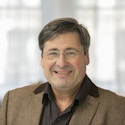
Igor Rodnianski, Ph.D.
Princeton University
Igor Rodnianski is a leading figure in the field of partial differential equations. He has recently proven theorems concerning the full nonlinear dynamics of the Einstein equations, in both the weak and strong field regimes, and has obtained new results regarding gravitational radiation associated to black hole spacetimes.
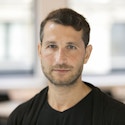
Allan Sly, Ph.D.
University of California, Berkeley
Allan Sly resolved long-standing open problems on the computational complexity of phase transitions and on the dynamics of the Ising model.
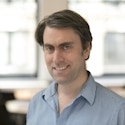
Nigel Cooper, Ph.D.
University of Cambridge
Nigel Cooper has shown how to design optical lattices for cold atoms that provide controllable laboratories for exploring the physics of interacting particles in the presence of gauge fields. He is also known for foundational works on the topological Kondo effect and on quantum oscillations in topological insulators.
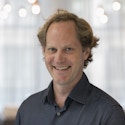
Steven Gubser, Ph.D.
Princeton University
Steven Gubser is known for foundational work on the gauge-string duality and its applications to heavy-ion and condensed matter physics, including a gravitational dual of superconductivity and studies of bulk flows of quark-gluon plasmas. He is also noted for work on semi-classical strings in anti-de Sitter space.
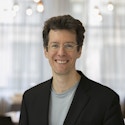
Shamit Kachru, Ph.D.
Stanford University
Shamit Kachru has done foundational work on string duality and string compactification. His recent work explores deep mathematics connecting automorphic forms, black holes, and string vacua, and develops quantum field theories describing ‘non-Fermi liquids’ and other novel phases in condensed matter physics.
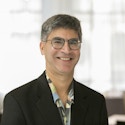
Anders Sandvik, Ph.D.
Boston University
Anders Sandvik is widely recognized for his development of stochastic series expansion methods for quantum problems and for his creative applications of these and related methods to topics including deconfined quantum criticality and optimization problems.
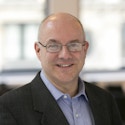
Eva Silverstein, Ph.D.
Stanford University
Eva Silverstein’s research connects the mathematical structure of string theory to predictions for cosmological observables, with implications for dualities, space-time singularities and black hole physics. Her work on axion monodromy provided a theoretically consistent model of large-field inflation.
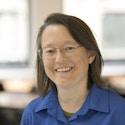
Eve Ostriker, Ph.D.
Princeton University
Eve Ostriker has made major contributions to our understanding of the role of the interstellar medium in star formation and galactic structure and evolution, with a focus on the role of turbulence and on the effects of energy returned by massive stars to the interstellar medium.
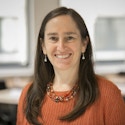
Wayne Hu, Ph.D.
University of Chicago
Wayne Hu has shown how cosmological observations can provide information about fundamental physics topics such as neutrino masses and dark energy.
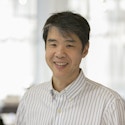
Scott Aaronson, Ph.D.
University of Texas at Austin
Scott Aaronson has established fundamental theorems in quantum computational complexity and inspired new research directions at the interface of theoretical computer science and the study of physical systems.
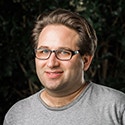
Boaz Barak, Ph.D.
Harvard University
Boaz Barak has worked on cryptography, computational complexity and algorithms. He developed new non-black-box techniques in cryptography and new semidefinite programming-based algorithms for problems related to machine learning and the unique games conjecture.
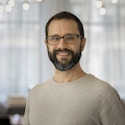
James R. Lee, Ph.D.
University of Washington
James R. Lee is one of the leaders in the study of discrete optimization problems and their connections to analysis, geometry and probability. His development of spectral methods and his work on convex relaxations has led to breakthroughs in characterizing the efficacy of mathematical programming for combinatorial optimization.
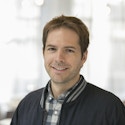
Arvind Murugan, Ph.D.
University of Chicago
Arvind Murugan works on how organisms enhance information uptake from the environment by using inference from past experience and has applied such ideas to self-assembly dynamics, olfaction, circadian clocks and stress-response pathways.
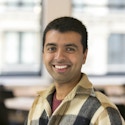
David Schwab, Ph.D.
City College of New York
David Schwab has developed theories of signaling and social aggregation in the social amoeba Dictyostelium and has shown how tensor-network methods from computational quantum physics can be used in machine learning.
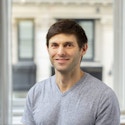
Aryeh Warmflash, Ph.D.
Rice University
Aryeh Warmflash has developed systems to mimic embryonic development in vitro using human embryonic stem cells and is developing dynamical system models of cell fate patterning and morphogenesis that can be rigorously compared with quantitative data on in vitro development.
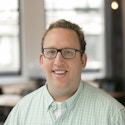
Daniel Weissman, Ph.D.
Emory University
Daniel Weissman has shown that the generation of ‘irreducible complexity’ happens most frequently in large populations and that the speed of adaptation is limited by the frequency of genetic recombination.
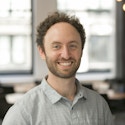
Andrea Bertozzi, Ph.D.
University of California, Los Angeles
Andrea Bertozzi has contributed to many areas of applied mathematics including the theory of swarming behavior, aggregation equations and their solution in general dimension, the theory of particle-laden flows in liquids with free surfaces, data analysis/image analysis at the micro and nano scales and the mathematics of crime.
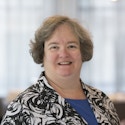
Amit Singer, Ph.D.
Princeton University
Amit Singer is one of the leaders in the mathematical analysis of noisy data provided by cryo-EM.
